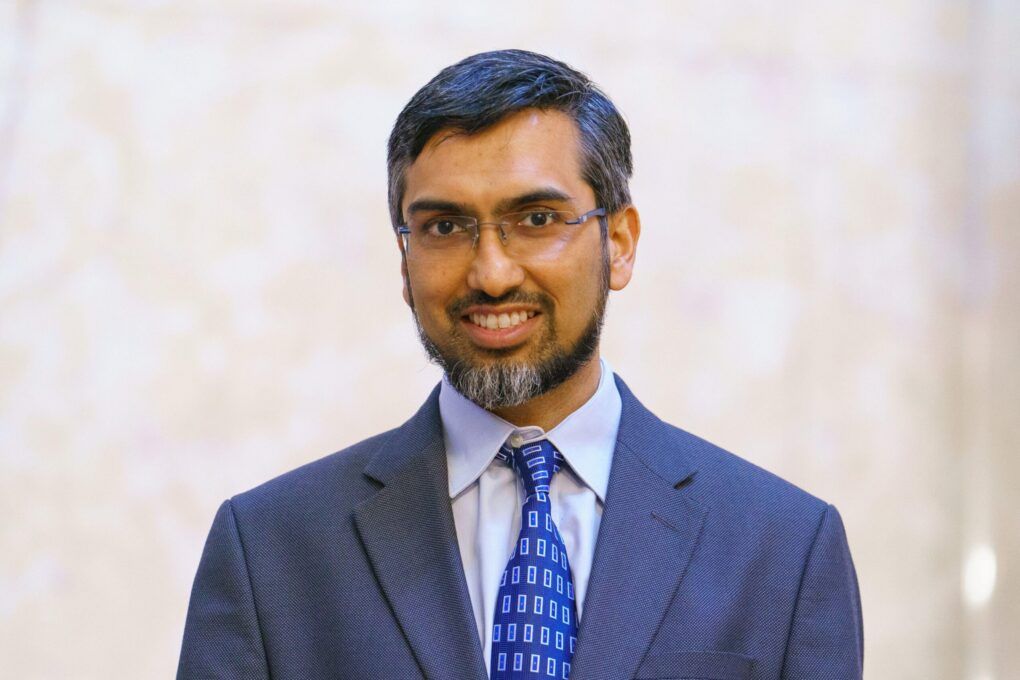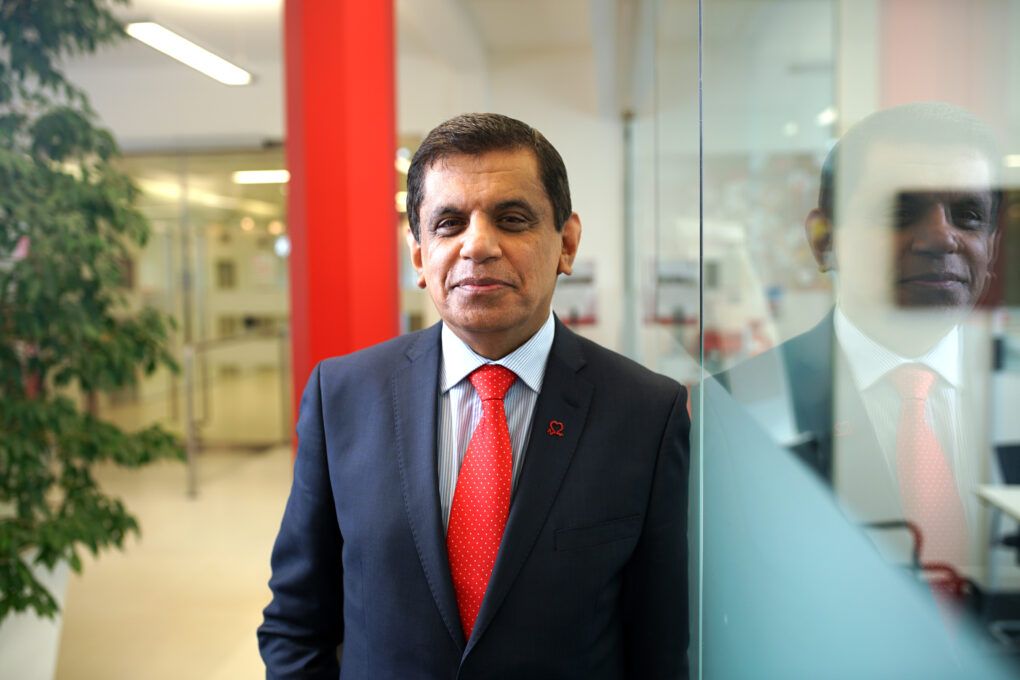How Our Future Health will revolutionise the way we deal with heart disease

Before you read this article, answer one quick question in your head. Do you have heart disease?
Plenty of people will answer ‘yes’. Around 2.3 million in the UK live with coronary heart disease – the leading cause of a heart attack or stroke. And every eight minutes someone dies from the condition.
Plenty more will answer ‘no’. But are they right?
There are over 50 million adults in the UK and the majority are not living with diagnosed heart disease. However, for a good number of these people, the early signs of heart disease might already be developing, putting them at risk of a heart attack or stroke later in life.
A famous scientific study from 1953 highlighted this. The study, carried out by the US Armed Forces, performed autopsies on soldiers who’d died in the Korean War. On average, the men were only 22 years of age, and yet over three-quarters of them already had atherosclerosis in the blood vessels supplying their heart and their brain (Atherosclerosis is the build-up of fatty material inside your arteries. It’s the condition that causes most heart attacks and strokes). The soldiers probably never knew it, but they were already on a path to a stroke or heart attack.
In the light of that study, and knowing that atherosclerosis develops over decades, can any of us safely say that we don’t have heart disease, whatever our age?
The problem with late detection
It’s an important question because healthcare systems around the world are fighting to get to grips with heart disease. The World Health Organisation says that the disease is the leading cause of death globally, taking an estimated 17.9 million lives each year. In the UK, it’s so widespread that more than half of the country’s population will suffer from a heart or circulatory condition in their lifetime.
For Dr. Raghib Ali OBE, Our Future Health’s Chief Medical Officer, a big part of the problem is that heart disease is often diagnosed when it’s already developed to a critical stage. “As a NHS consultant, I’ve lost count of the number of times I’ve met a patient who’s had a heart attack or stroke and it’s the first time we’ve known they have heart disease,” he says. “It’s far too late to be finding out. Even if you survive a heart attack, it weakens your heart muscle and you have a much higher risk of heart failure in the future.
“We know that heart disease develops over years or decades,” says Dr Ali. “There’s even evidence to show it starts in childhood. Yet we often wait until patients have symptoms like chest pains to detect it.
“If we can find a way to get to patients earlier – perhaps before their disease has even started – there are things we can do to stop the condition from taking hold.
“It would be a massive leap forward for healthcare. Revolutionary, even.”

The prevention revolution
This is where Our Future Health comes in. The UK’s largest ever health research programme is building a database of up to five million adults from across the country. Volunteers donate information about their health by answering a questionnaire about their lifestyles, consenting to researchers accessing their medical records, and providing a small sample of their blood for genotype analysis. Taken together, the information will create an incredibly detailed picture of the nation’s health, which researchers can analyse to find new ways to prevent, detect and treat common diseases.
In the context of heart disease, Our Future Health’s extensive database will allow researchers to drastically improve the tools doctors use to predict a patient’s risk of heart disease – and even allow interventions to begin before the disease has started in a person’s body.
“Currently, the main way we identify people at high risk of heart disease is through the NHS Health Check,” says Dr Ali. “You get your cholesterol and blood pressure checked, along with your height and weight, and that information is used to calculate your ten-year risk of heart disease. If your risk is higher than ten percent, you’ll often be put on a statin and monitored.”
Broadly, there are two problems with this approach. Firstly, the NHS Health Check is only available to people aged 40 and over, so it doesn’t detect anyone with a high risk of heart disease at a younger age, even though we know that’s when the condition often takes hold.
And secondly, the calculator lacks nuance. “It’s missing an individual level of susceptibility to heart disease”, explains Dr Ali. “For example, someone like me who is South Asian has a higher risk – but ‘South Asian’ is a very broad category. We don’t know who in that category has a high risk and who has a low risk.
“Similarly, the white European population has an overall lower risk – but there will still be people within that category who have a high risk, due to their genes or lifestyle factors.”
With Our Future Health, doctors will have access to sharper analytical tools. The programme will be producing integrated risk scores which include information on genetic susceptibility which will show more accurately who is at higher risk of common diseases. “It will mean we can identify people in their 20s or 30s who have a higher risk of heart disease and intervene earlier ,” says Dr Ali. “Just by doing that, we can really bring down the impact of heart disease on society as a whole.”
Stopping a disease before it’s started
So, how would it help doctors to know if someone has a high risk, even when they haven’t actually started to develop heart disease?
“In the future, with Our Future Health we’ll be able to identify the people most at risk, at any age, and refer them to have regular checks,” says Dr Ali. “At those checks, as well as our usual diagnostic tools like cholesterol checks, we’ll use new technologies to detect the early signs of heart disease. For example, Our Future Health might allow researchers to identify the proteins in someone’s blood that indicate they’re suffering from heart disease.
“When doctors detect the early signs of the disease, they’ll start by advising lifestyle changes. If that doesn’t work, they’ll consider treatment, like statins and blood pressure drugs.”
“In 20 years’ time, with the help of Our Future Health, people will know their individual susceptibility to heart disease from the age of 18 and they’ll receive tailored healthcare to manage that risk. It will mean better outcomes for the patient, and it will be cheaper and more effective for the NHS. “As a doctor, I’ll be much less likely to meet a patient in their 60s who’s had a heart attack before a heart disease diagnosis. People are going to live healthier lives for longer because of this research programme.
Why British Heart Foundation is partnered with Our Future Health

British Heart Foundation is one of the numerous charities that are partnered with Our Future Health, to help people live healthier lives for longer.
“We’re pleased to support Our Future Health, which has the potential to unveil new insights into cardiovascular health and disease,” says Professor Sir Nilesh Samani, the British Heart Foundation’s Medical Director.
“Heart and circulatory diseases impact the lives of millions of people across the UK and are responsible for a quarter of all deaths. This initiative could enable researchers to tap into, and capitalise on, a wealth of health data to help power the next breakthroughs in cardiovascular medicine.”
To find out more about heart disease, visit BHF.org.uk

Let’s prevent disease together
By volunteering for Our Future Health, you can help health researchers discover new ways to prevent, detect and treat common conditions such as diabetes, cancer, heart disease, stroke and Alzheimer’s.